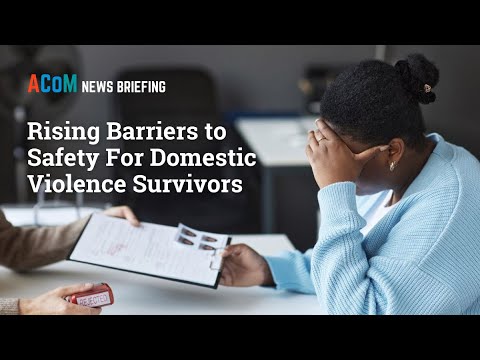Vidya Sethuraman
India Post News Service
Immigrant survivors of domestic violence are encountering new obstacles to safety as critical legal and funding protections erode. Survivors applying for U visas — given to victims of violent crime or VAWA visas which allow survivors to petition for immigration status separate from an abusive partner face greater scrutiny and stricter application procedures. Asylum protections for gender-based violence survivors have also been gutted. Speakers at this weekly media conference discussed the challenges faced by immigrant DV survivors and possible avenues for support.
Carmen McDonald, Executive Director, Survivor Justice Center pointed out that nearly 70% of Los Angeles County’s service recipients are immigrants. Since the frequent raids by federal Immigration and Customs Enforcement (ICE), fear has quickly spread throughout the community. Many survivors have chosen to give up reporting, cancel restraining orders, or even interrupt medical treatment for fear of being arrested in court or hospitals. Schools and nonprofits are also observing a drop in student attendance and a general atmosphere of fear at home. McDonald calls on the media and all sectors of society to help increase the visibility of resources and support organizations that provide free legal and psychological services.
Patima Komolamit, Executive Director, Center for the Pacific Asian Family said the center has long served Asian immigrant women since its establishment in 1978. But she said recent federal grants have come with new strings attached, such as prohibiting funds from being used to promote gender ideology or abortion-related services, leaving frontline organizations in uncertainty. “Immigration status is often used as a threat by perpetrators, and now it is institutionalized.” She worries that these restrictions will weaken the ability of organizations to provide culturally and linguistically appropriate services to vulnerable groups, causing survivors to be further marginalized.
Morgan Weibel, Director of Client Advocacy/Legal Services, Tahirih Justice Center said that the Violence Against Women Act (VAWA) originally guaranteed that immigrant domestic violence survivors could apply for status on their own without relying on their abusive spouses. However, in recent years, the federal government has tightened review, strengthened interview procedures, and even directly included those who were rejected in the deportation process, making survivors afraid to apply. In addition, U-visas for victims of specific violent crimes and T visas for victims of human trafficking are also subject to strict scrutiny, which violates the original intention of the legislation to encourage victims to come forward and report crimes.
Also Read: SAHARA celebrates 33 years of serving victims of Domestic Violence and Elder Abuse







